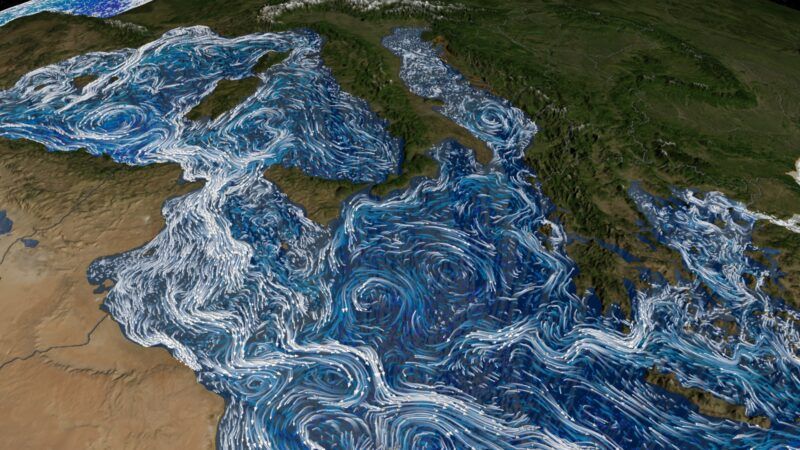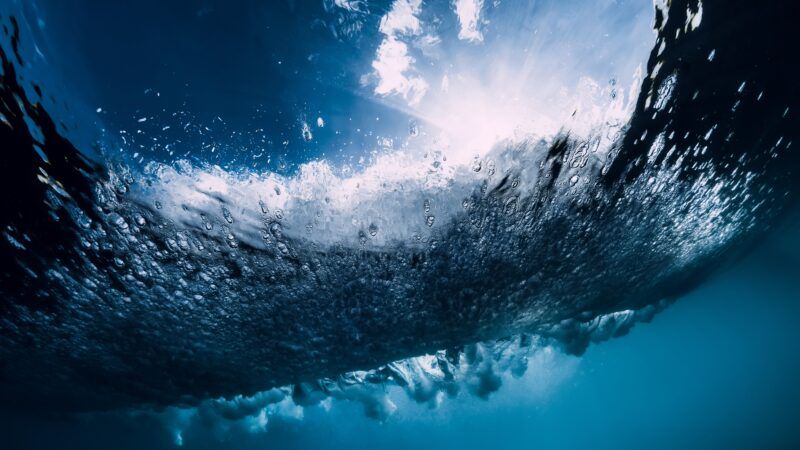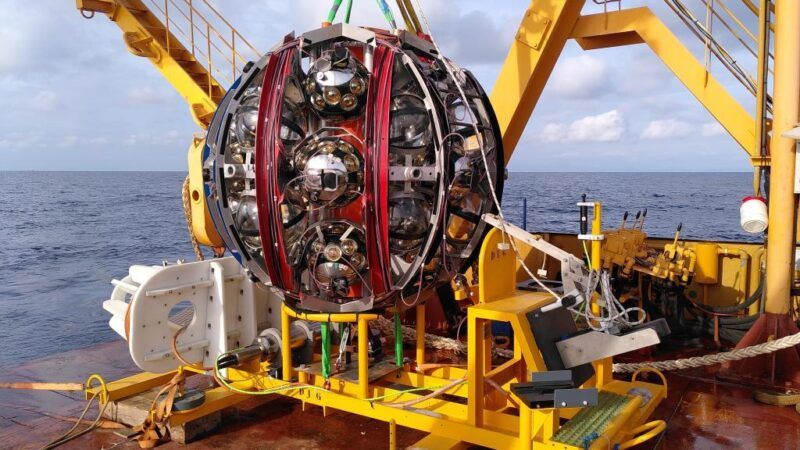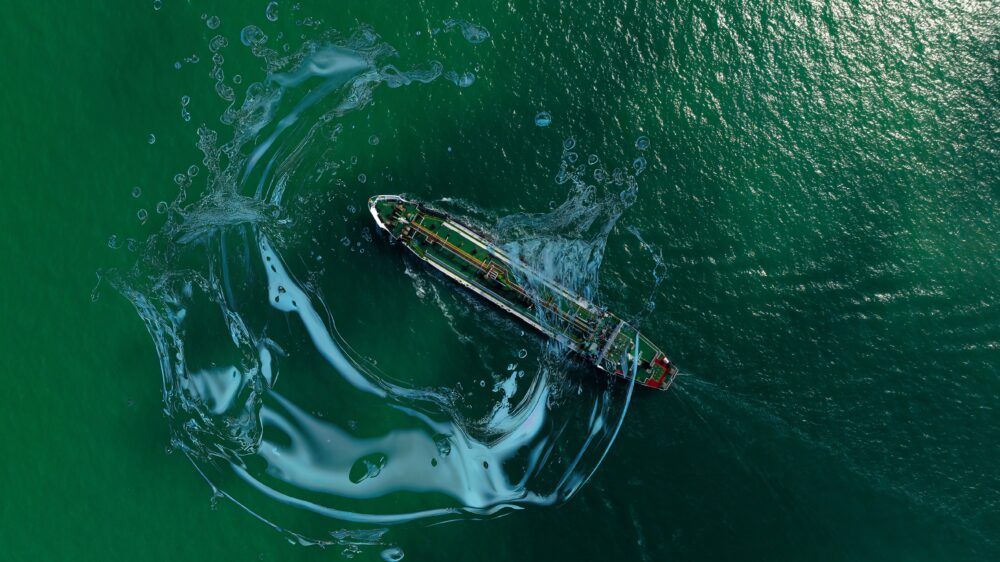
The Mediterranean Goes Green: Keys to a Blue Transformation
The Mediterranean maritime transport sector faces the transition towards a completely sustainable model. From the creation of international collaboration networks to the development of disruptive technologies, current initiatives outline the roadmap for a transformation that goes beyond decarbonization to embrace circular economy, digitalization and financial innovation. These are the strategic keys that emerge from debates between experts, startups and investors to make the Mediterranean a global benchmark in 'green shipping'.

Predoctoral researcher at CENIT, with doctoral thesis focused on blue economy applied to the Port of Barcelona.

Mediterranean maritime transport is at a decisive moment. The need to advance towards a more sustainable model has driven a series of innovative initiatives that seek to radically transform the sector. These strategies and challenges were analyzed in detail during the Green Marine Med Innovation and Finance Summit held in Barcelona on July 2nd and 3rd, a meeting space between startups, institutions and investors to accelerate maritime innovation and the so-called 'green shipping'. A congress that set course towards a greener, more collaborative and sustainable Mediterranean.
- What does the term 'Green shipping' really mean?
As explained by Noelia Ortega, CEO of Centro Tecnológico Naval y del Mar (CTN), during the event, «Green shipping is more than decarbonization of the sector, it is circular economy, digitalization and mitigating acoustic impact, among other aspects». These actions embrace an integral vision that goes far beyond simple emissions reduction and constitute the core of the initiatives being developed in the Mediterranean.
The Green Marine Med project seeks much more than to raise awareness, it wants to mobilize. Its strength lies in the ability to connect the entire value chain (vessels, infrastructure, energy, innovation and investment) to create a Mediterranean network committed to change. This network, the Mediterranean Green Shipping Network, acts as a base for useful and shared technological monitoring, identifying innovative solutions and common challenges.
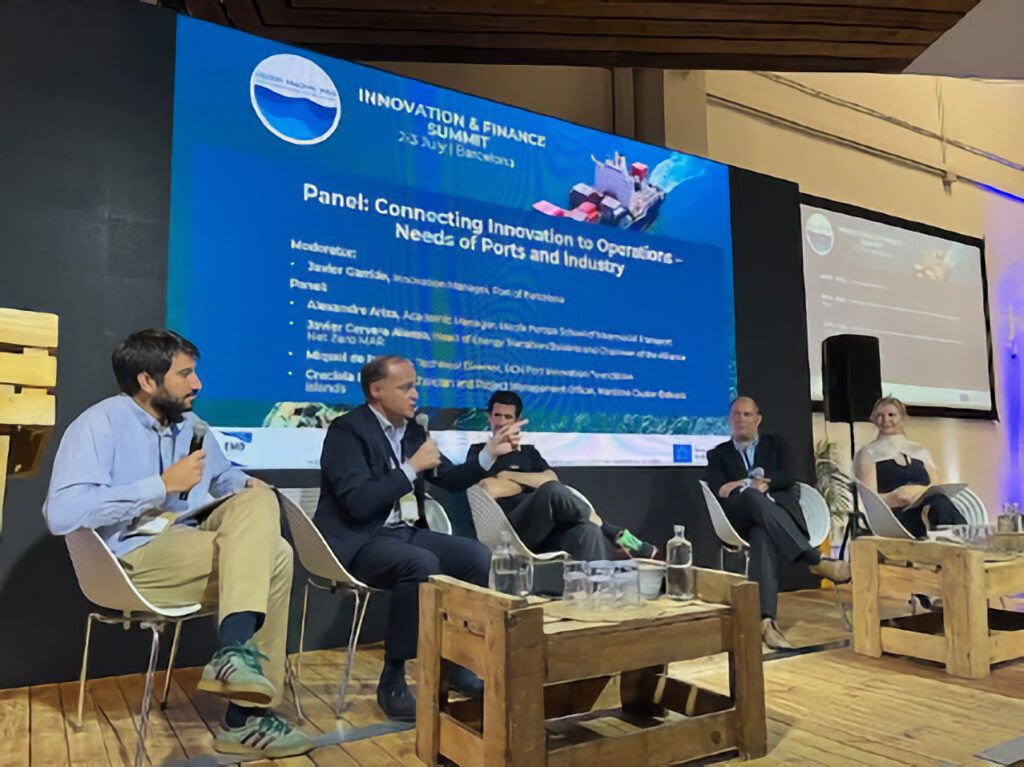
A Mediterranean network for change
The creation of the Mediterranean Green Shipping Network has been one of the most tangible results of these initiatives, a project driven by the Centro Tecnológico Naval y del Mar (CTN) and the World Ocean Council.
The objective of the Mediterranean Green Shipping Network is to establish a solid foundation for shared technological monitoring, identifying innovative solutions and common challenges between the two shores of the Mediterranean. During the Barcelona event, it was detailed how this network aims to mobilize diverse actors: startups with disruptive ideas, financial companies, shipping companies, institutions and representatives of ports and marinas, all united by a common objective: to create a Mediterranean ecosystem committed to sustainable change.
The strength of Green Marine Med'lies in the ability to connect the entire value chain (vessels, infrastructure, energy, innovation and investment) to create a Mediterranean network committed to change, the Mediterranean Green Shipping Network, which acts as a base for useful and shared technological monitoring, identifying innovative solutions and common challenges.
The Center of Excellence: beyond the project
One of the most outstanding points of the project is the active support for entrepreneurship. Through the inclusion of accelerators and other business support programs, Green Marine Med aims to boost startups and entrepreneurs who can revolutionize maritime and port transport. With the launch of the International Call for Green Shipping Innovation, it seeks to offer direct support to ideas that transform the sector and make it more sustainable.
This approach, focused on innovation, training and green financing, ensures that the project can grow beyond its duration, sharing knowledge and best practices between the two shores of the Mediterranean. Once completed, the commitment is for the network to remain alive thanks to the creation of a Mediterranean Green Shipping Center of Excellence, led by the World Ocean Council.
Within this center, the Observatory of Ecological Navigation Technologies in the Mediterranean is being developed, a key tool to attract active participation from partners, institutions and governance agents. The objective is for this observatory not to be just a monitoring space, but an open platform to detect trends, anticipate scenarios and generate collective knowledge around 'green shipping' in the region.
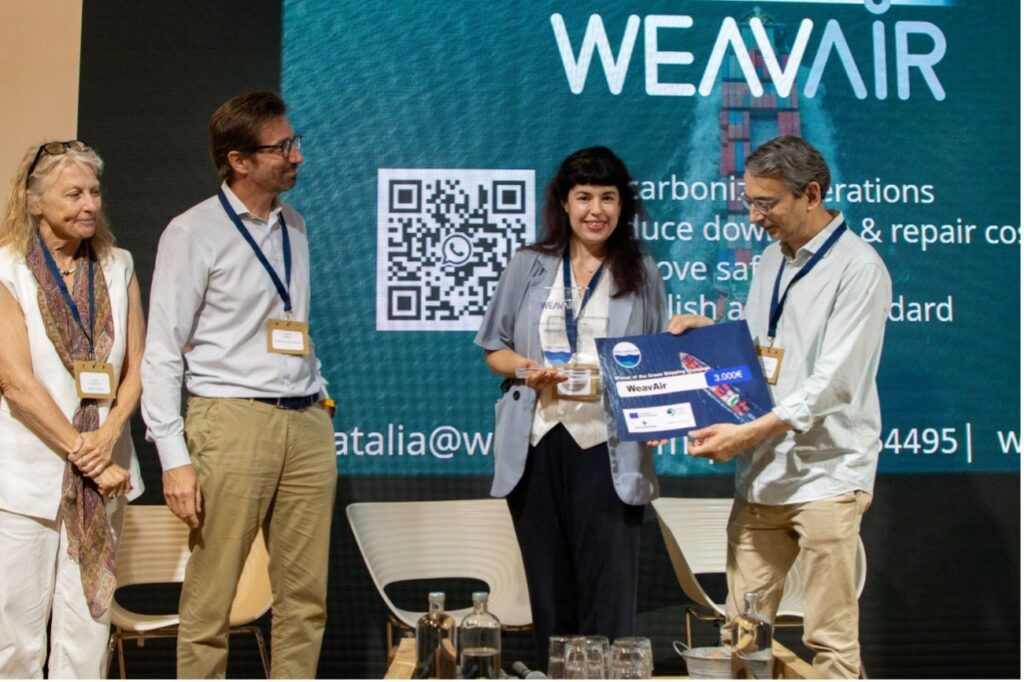
Support for entrepreneurship and innovation
Active support for entrepreneurship constitutes one of the most outstanding points of these initiatives. Through the inclusion of accelerators and business support programs, the aim is to boost startups and entrepreneurs who can revolutionize maritime and port transport.
The International Call for Green Shipping Innovation offers direct support to transformative ideas. An example of this commitment to innovation was reflected during the Green Marine Med Innovation and Finance Summit with the presentation of the Call for Innovation for Green Shipping Ideas award, endowed with €3,000. The winning project was WeavAir, a pioneering company in digitalization and sustainability of the maritime sector.
Natalia Mykhaylova, and founder of WeavAir, explained how her company develops software to predict and optimize maritime operations through satellites, drones and IoT platforms, always aligned with ESG objectives (environmental, social, governance). The company, which has already received more than 20 international recognitions including the Clean50 Top Project and the Le Monde Smart City Award, exemplifies how innovation can decarbonize operations, improve safety, reduce climate risks and increase efficiency, all translating into cost reduction.
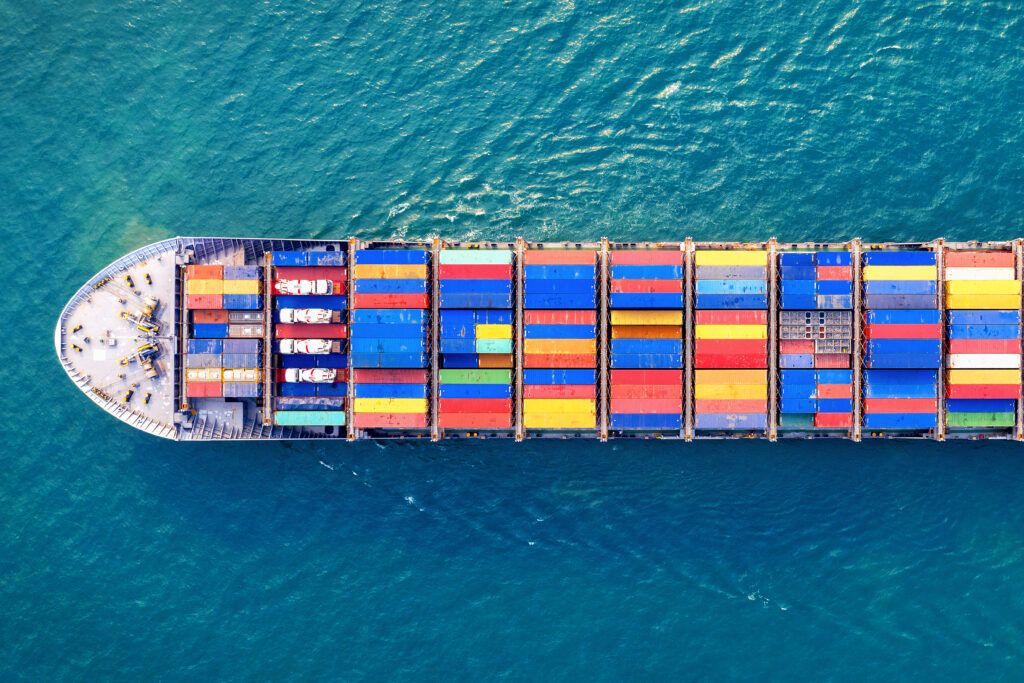
Strategic priorities of Mediterranean 'green shipping'
The sessions of the Green Marine Med Innovation and Finance Summit identified various strategic priorities for the development of Mediterranean green shipping. There was widespread consensus on the need to establish a long-term vision, with participants agreeing on the importance of knowing where they want to go in the coming years so as not to lose course.
- Public-private collaboration
It is essential to strengthen this collaboration, not only to finance but to drive and support innovations with a common vision that involves all actors. During the event, the need for this collaboration was highlighted to make the debated innovations a reality.
- Combustibles verdes e infraestructura
Another hot topic was that of green fuels: what are the real alternatives and what barriers hinder their adoption. One of the main concerns was the current infrastructure, which is not prepared to make the leap to large scale. Very large investments would be needed to modify or adapt supply points, and this generates uncertainties. In the words of some participants, we cannot make million-dollar investments that become obsolete in a few years. That is why the stability of strategic decisions is key in this changing context.
During the debates of the Green Marine Med Innovation and Finance Summit, Leila Ben Hassen, CEO of Blue Jay Communication, perfectly summarized this need for anticipation:: «There are gaps. What do we have? What will we have? What will we need? All these questions require good anticipation».
- Business model transformation
It was also put on the table that innovation cannot remain only in technology: a transformation of the port business model is needed, a review of operational processes and a different way of understanding the logistics chain. Yes, digitalization is important, but we must go beyond.
To accelerate this innovation, the need to collaborate was highlighted once again, to do so with all the parties involved, and especially with the experts who are already working on these solutions.
- International cooperation
The Mediterranean is shared between Europe, North Africa and the Middle East. Therefore, joint management of the sea requires real cooperation between all shores and the adoption of shared strategies. In this regard, Nesrine R. Ziad, from Leancubator, emphasized during the financing discussions that international unification beyond the European Union's limits is needed to achieve effective management of this shared maritime space.
- Territorial networks
These networks, formed by companies, research centers and other stakeholders, work to foster collaboration and dissemination of projects related to the blue economy. They are spaces where ideas, resources and talent are connected to boost sectors such as aquaculture, renewable energies or marine instrumentation, key areas within the Mediterranean context and especially relevant for the Catalan maritime R&D+i ecosystem.
The presentations of these initiatives allowed a close look at how real alliances are being articulated at regional scale, and how innovation is also built from proximity and shared knowledge. The sessions concluded with a dynamic and agile matchmaking session, designed to facilitate connections between startups, established companies, investors and institutions.
- Preparing the next generations
A crucial aspect for the sustainability objective of the sector is, undoubtedly, the preparation of new generations, as experts pointed out. Not only in academic terms but also in real skills for the new blue economy.
This need was especially highlighted during the sessions of the Green Marine Med Innovation and Finance Summit, where Mounir Ghribi, Director of International Cooperation at OGS, the National Institute of Oceanography and Applied Geophysics, emphasized that "we must give opportunities to new generations so that the Mediterranean can grow." It is essential to offer opportunities within the professions that are now beginning to be defined to ensure that the Mediterranean can grow sustainably.
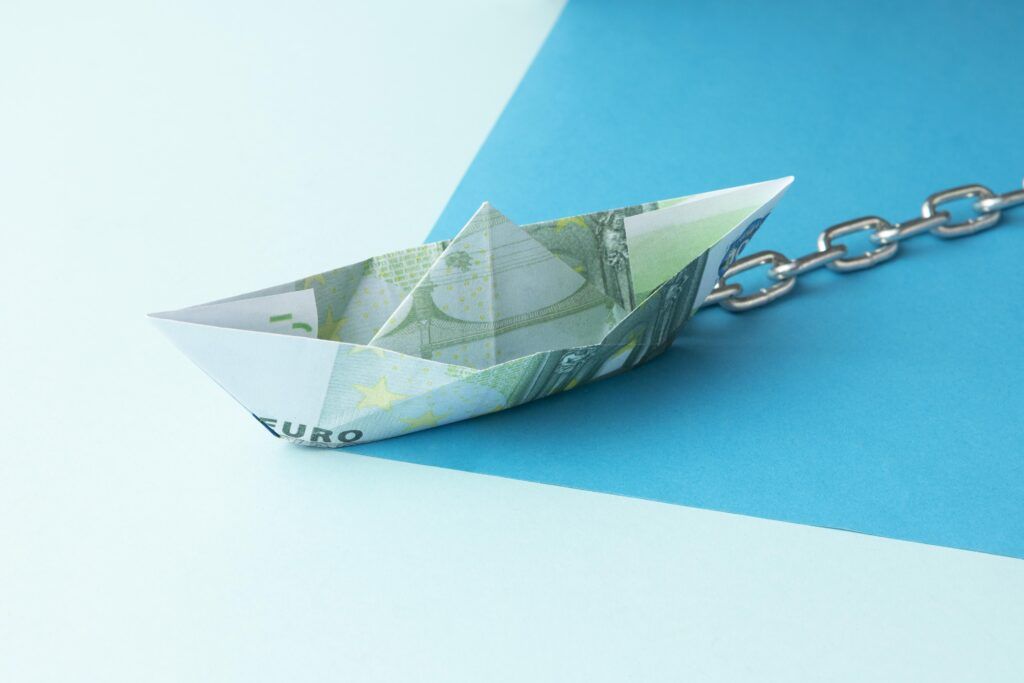
The financing challenge: Green Shipping Finance Guide
One of the major difficulties in securing funding for 'green shipping' projects is that they have very specific needs, both logistical, technical and financial. Often, investment payback times are very long, as these are technologies that still need to be developed, tested and scaled. This makes the risk high and attractiveness low from investors' perspective, especially for those seeking short-term returns.
Additionally, many small companies cannot stop their activity to adapt or modernize, and this is precisely where the importance of public capital comes into play. If part of the risk is assumed with public funds, private capital can join with more confidence, making the overall investment more attractive and viable.
This is why the second day of the Green Marine Med Innovation and Finance Summit focused on how to make reality of everything that had been debated the previous day: financing. Talking about innovation is essential, but making it reality requires capital, support and a long-term strategy. Hence the importance of the event for sharing space with prominent investors, public financing organizations and accelerators from across the Mediterranean. It was a day where barriers between the innovation and financial worlds were broken.
- One of the highlights was the presentation of the Green Shipping Finance Guide, designed to help both startups and established projects better understand what the pathways, criteria and funding opportunities are in this field.
Throughout the interactive panels, one of the concepts that was most repeated when assessing whether a project is bankable was scalability: whether that solution can be applied in more ports or contexts. Terms such as ROI (Return on Investment) and Trust also emerged, understood as a legal mechanism where an intermediary manages resources between the investor and the beneficiary. A model that could have potential in innovative projects like these.
There are three main funding pathways: private, public and mixed. In the latter, part of the cost is assumed by governments or institutions, thus reducing the burden and risk for private investors.
Laura Kottos, Project Officer at CINEA (European Climate, Environment and Infrastructure Executive Agency), spoke about the financial tools available to boost innovation in the blue economy. Some of these tools that CINEA offers are:
- la EMFAF (the main financing instrument for marine policies)
- CEF (Connecting Europe Facility)
- LIFE (EU’s funding instrument for the environment and climate action)
- Blue Invest
- Green Assist
- WestMED
- InvestEU
But, apart from all these programs, experts placed great emphasis on the fact that financing innovation is not enough: if we want a new technology to be implemented in the day-to-day operations of the sector, we must support the entire chain, from startups and the creation phase to end customers and their adoption. That is, support is needed to create, implement and consolidate.
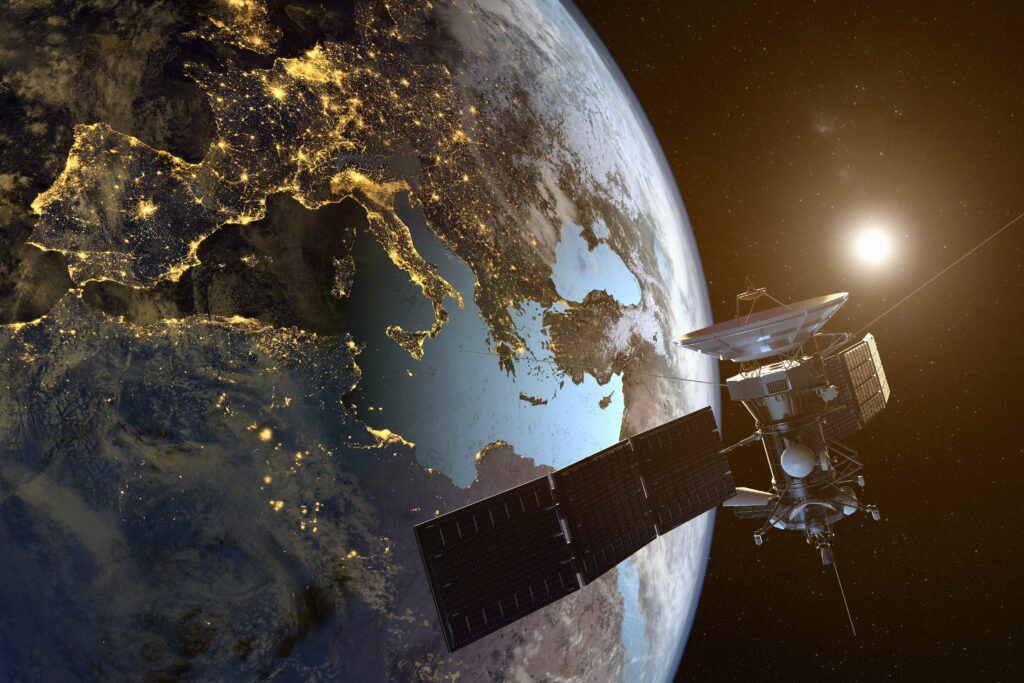
Specific challenges of green shipping in the Mediterranean
In fact, 'green shipping' projects present very specific needs, both logistical, technical and financial. During the interactive panels of the Green Marine Med Innovation and Finance Summit, it was highlighted that many small companies cannot stop their activity to adapt or modernize. This is where the importance of public capital comes into play: if part of the risk is assumed with public funds, private capital can join with more confidence, making the overall investment more attractive and viable.
One of the most interesting debates that emerged was the need to define what we understand by green maritime projects, since there is currently no clear definition and each actor may understand it differently.
The initiatives for green shipping in the Mediterranean, as debated and analyzed during the Green Marine Med Innovation and Finance Summit in Barcelona, represent a paradigmatic change in the way maritime transport is understood. The key to success lies in the ability to connect innovation, financing and international cooperation, creating an ecosystem that fosters sustainable transformation of the sector.
- This comprehensive approach, which combines technology, circular economy, digitalization and mitigation of environmental impacts, positions the Mediterranean as a global benchmark in the transition towards more sustainable and efficient maritime transport.
The debates and conclusions of the Barcelona event show the path to follow to make this necessary transformation of the Mediterranean maritime sector a reality.

Green Marine Med is a project co-financed by European Maritime, Fisheries and Aquaculture Fund (EMFAF)
Call: EMFAF-2023-PIA-FLAGSHIP, Project proposal: 101124818


